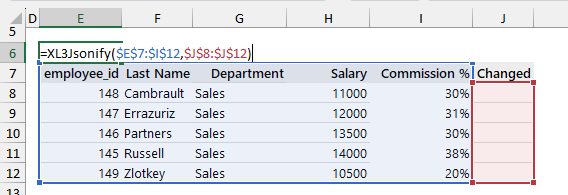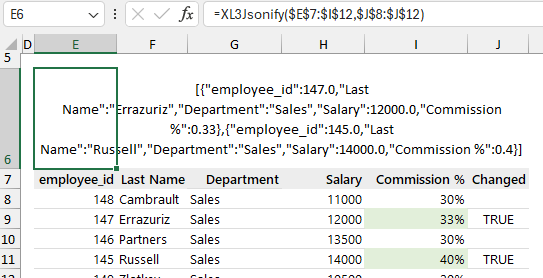Difference between revisions of "XL3Jsonify"
(→See Also) |
|||
| Line 21: | Line 21: | ||
==Example== | ==Example== | ||
| − | {{Code|=XL3Jsonify($ | + | {{Code|=XL3Jsonify($E$7:$I$12,$J$8:$J$12)}} |
| − | ''Rows of the $ | + | ''Rows of the $E$7:$I$12 range for which the cell value is equal to TRUE for the same row in the $J$8:$J$12 range are returned as a JSON string.'' |
| − | [[File: | + | [[File:03 XL3Jsonify.png|center]] |
| − | [[File: | + | [[File:04 XL3Jsonify.png|center]] |
==See Also== | ==See Also== | ||
Revision as of 16:15, 8 April 2024
XL3Jsonify transforms an array into a JSON string. The source array can optionnaly be filtered on the basis of a column tracking changed values (used in conjunction with XL3TrackChanges). XL3Jsonify is often used as an argument for XL3RunSQLProc2 to pass a JSON structure to an SQL Stored Procedure.
Contents
[hide]Syntax
XL3Jsonify( Input, Filter )
Parameters
| Parameter | Description |
|---|---|
| Input | The range to watch for changes. |
| Filter | The range (column) that contains TRUE values to corresponding changed rows. |
Example
Rows of the $E$7:$I$12 range for which the cell value is equal to TRUE for the same row in the $J$8:$J$12 range are returned as a JSON string.

